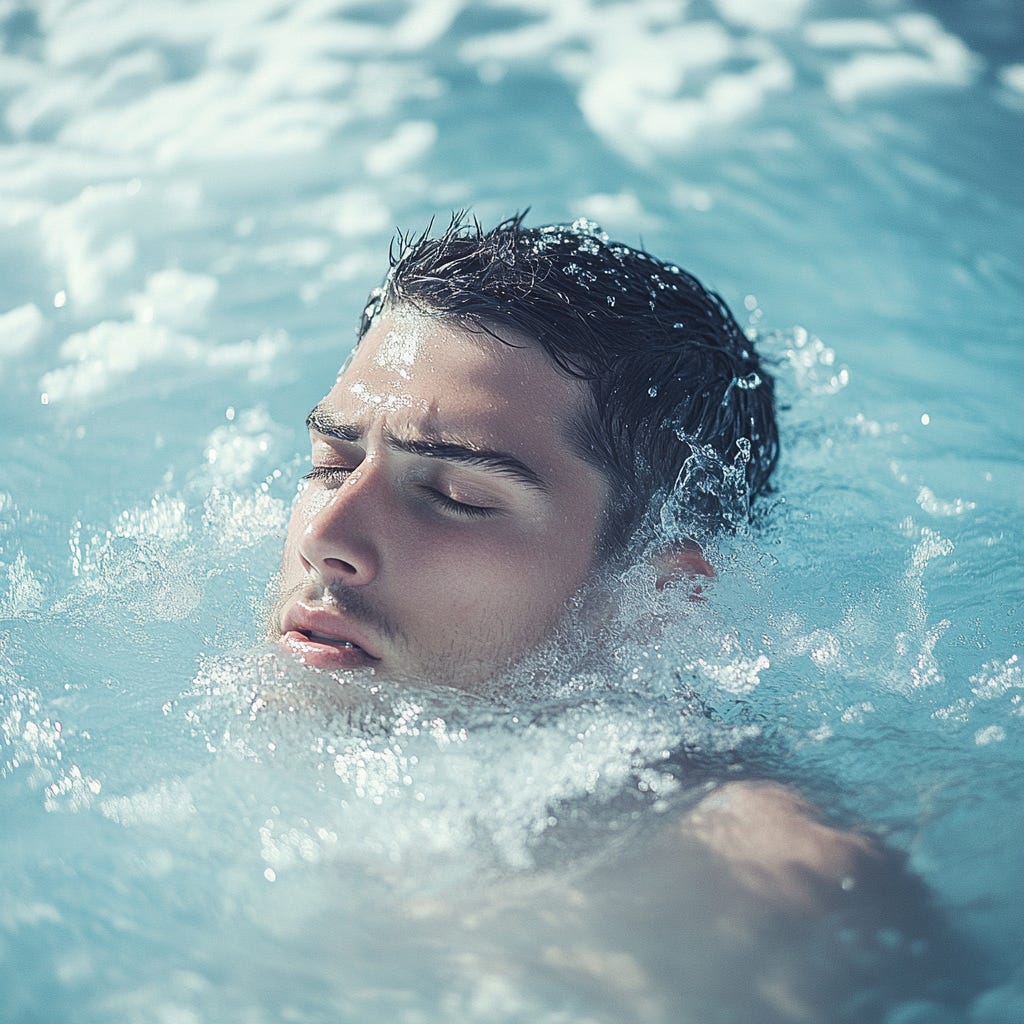Post-Exercise Cold Water Immersion Hurts Muscle Recovery
Great for muscle soreness, not so good for recovery.
Athletes widely use post-exercise cold-water immersion for recovery, but its effects on muscle blood flow and protein synthesis are debated. This study directly examined how cooling after resistance exercise affects muscle microvascular perfusion and the incorporation of dietary amino acids into muscle tissue in active young men.
PMID: 40249909
Key Points
Aim
To determine whether post-exercise cold-water immersion reduces muscle microvascular perfusion and, as a result, blunts the incorporation of dietary amino acids into muscle protein during recovery.
Methods
Participants: 12 healthy, recreationally active young men (average age 24).
Design: Each participant performed a single resistance exercise session. Afterwards, one leg was immersed in cold water (8°C, "COLD") and the other in thermoneutral water (30°C, "CON") for 20 minutes.
Post-immersion Nutrition: All participants consumed a beverage with 20g free amino acids and 45g carbohydrates.
Measurements:
Muscle microvascular perfusion (blood flow in small vessels) in the vastus lateralis was measured using contrast-enhanced ultrasound (CEUS) at rest, immediately post-immersion, and at 60 and 180 minutes after the drink.
Muscle biopsies were taken at 240 minutes to assess how much of the amino acid was incorporated into muscle protein.
Results
Muscle Perfusion:
Microvascular blood volume was significantly lower in the cooled leg compared to the control leg immediately after immersion.
This reduced blood flow persisted at 60 and 180 minutes after the nutritional drink.
Amino Acid Incorporation:
The incorporation of dietary amino acids into muscle protein was significantly lower in the cooled leg.
The difference in amino acid incorporation between legs was strongly associated with the difference in microvascular perfusion.









